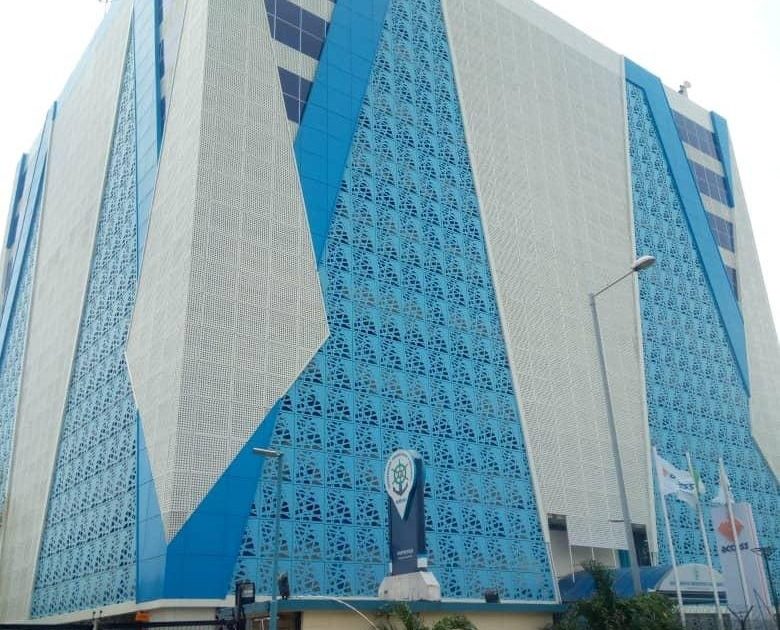Paragraph 1: The Tragic Incident and Ensuing Dispute
A fatal accident on Christmas Day at the Five Star Logistics Terminal, Tincan Island Port, Lagos, has ignited a contentious exchange between the Maritime Workers Union of Nigeria (MWUN) and the terminal operator. A dockworker lost his life when a crane crushed him onboard a vessel, prompting MWUN President, Adewale Adeyanju, to accuse the terminal and its stevedoring contractor of negligence and unsafe working practices. The terminal, however, refutes these allegations, asserting its commitment to high safety standards. This clash highlights the critical issues of worker safety, regulatory oversight, and the often-strained relationship between labor unions and terminal operators in the maritime industry. The incident underscores the need for a thorough investigation to determine the root causes of the accident and prevent similar tragedies in the future.
Paragraph 2: MWUN’s Accusations of Negligence and Unsafe Practices
The MWUN contends that the fatal accident was a direct result of the terminal operator’s and the stevedoring contractor’s disregard for worker safety. Adeyanju criticized the inadequate supervision of dockworkers, pointing out the insufficient number of supervisors relative to the number of workers onboard the vessel. He questioned how a single supervisor could effectively monitor the activities of 50 to 60 workers simultaneously. Furthermore, the union president accused the terminal of allowing workers to operate without essential personal protective equipment (PPE), such as safety boots, overalls, and helmets. The absence of crane supervisors at the time of the incident further solidified the MWUN’s claims of negligence, painting a picture of a work environment where safety protocols were routinely ignored.
Paragraph 3: The Terminal’s Defense and Counter-Claims
In response to the MWUN’s accusations, Five Star Logistics Terminal’s Customs Care Manager, Chuks Okereafor, vehemently denied the allegations of unsafe working conditions. He asserted that the terminal adheres to high safety standards and enforces the mandatory use of PPE. Okereafor highlighted the presence of safety notices throughout the terminal as evidence of their commitment to worker safety. He further defended the terminal’s practices by stating that none of the four stevedoring companies operating within the facility had ever lodged complaints about anti-labor practices. However, Okereafor’s claim that he was on leave and therefore lacked full details of the incident raises questions about the terminal’s immediate response and internal communication regarding the tragedy.
Paragraph 4: The Broader Context of Maritime Worker Safety
This incident highlights the precarious nature of dockwork and the ongoing struggle for improved safety standards in the maritime industry. The MWUN’s allegations raise concerns about the adequacy of regulatory oversight and the effectiveness of enforcement mechanisms designed to protect workers. The inherent risks associated with operating heavy machinery, working at heights, and handling cargo demand stringent safety protocols and a culture of safety consciousness. The lack of clarity regarding the specific circumstances leading to the dockworker’s death underscores the need for a transparent and independent investigation to determine accountability and identify systemic failures that contributed to the tragedy.
Paragraph 5: The Importance of Effective Communication and Collaboration
The contrasting narratives presented by the MWUN and Five Star Logistics Terminal underscore the importance of effective communication and collaboration between labor unions, terminal operators, and regulatory bodies. Open dialogue and a shared commitment to worker safety are essential for creating a sustainable and safe working environment. The adversarial nature of the current exchange hinders the progress towards identifying the root causes of the accident and implementing corrective measures. A collaborative approach, involving all stakeholders, is crucial for developing and enforcing comprehensive safety protocols that prioritize the well-being of maritime workers.
Paragraph 6: The Need for a Thorough and Transparent Investigation
The tragic death of the dockworker necessitates a comprehensive and transparent investigation to determine the sequence of events leading to the accident and identify any contributing factors. This investigation should involve independent experts and representatives from the MWUN, the terminal operator, the stevedoring contractor, and relevant regulatory agencies. The findings of the investigation should be made public to ensure accountability and inform the development of effective preventative measures. Furthermore, the investigation should examine the adequacy of existing safety regulations and enforcement mechanisms within the maritime industry, with the aim of strengthening worker protections and preventing future tragedies.














